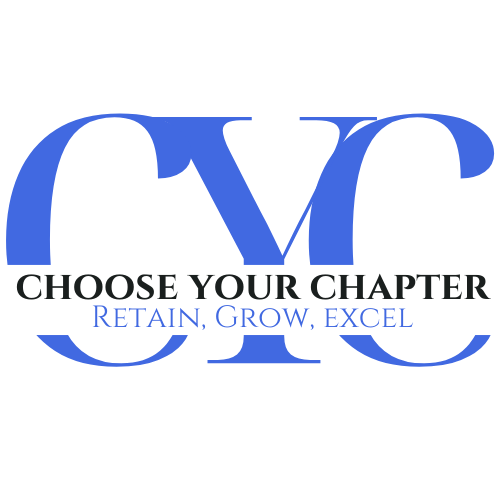You Know What You Know
The concept of “you know what you know, you know what you don’t know, and you don’t know what you don’t know” offers a powerful framework for understanding awareness and growth—not just intellectually but also mentally and emotionally. By recognising knowledge gaps and blind spots, we unlock the potential to build resilience, improve emotional intelligence, and enhance mental fitness. This idea is particularly relevant to personal development, emotional well-being, and adaptive problem-solving. A coach serves as an essential partner in addressing these levels, helping to expand not only intellectual but also emotional and psychological awareness.
The Three Levels of Awareness

You Know What You Know
This represents the knowledge, skills, and mental strategies you’re confident about.
Example: An accountant knows how to complete financial records.
Mental and Emotional Fitness at This Level:
Confidence in your ability to manage emotions, such as staying calm under pressure.
Proficiency in mental techniques like mindfulness or goal-setting.
Awareness of emotional triggers and the ability to respond constructively.
A coach challenges you to deepen and leverage your emotional and mental fitness. They help you refine these strengths, ensuring you maximise your capacity for balance, focus, and well-being.

You Know What You Don’t Know
This reflects awareness of areas where mental and emotional skills and knowledge need development.
Example: You recognise that you struggle with assertive communication and want to improve your boundary-setting skills.
Mental and Emotional Fitness at This Level:
Recognising gaps in emotional skills, such as difficulty managing anger or anxiety.
Awareness of mental habits that hinder growth, like procrastination or negative self-talk.
Desire to learn strategies to handle emotional challenges more effectively.
A coach helps you identify and practice the techniques needed to enhance emotional resilience and mental agility. They guide you in acquiring tools like stress management techniques, conflict resolution strategies, and self-regulation practices.

You Don’t Know What You Don’t Know
These are the hidden emotional and cognitive blind spots – areas where you’re unaware of your own limitations and vulnerabilities.
Example: A team captain may not realise their leadership style is alienating team members.
Mental and Emotional Fitness at This Level:
Unawareness of deep-seated beliefs or habits affecting emotional well-being, like perfectionism or fear of failure.
Blind spots in emotional intelligence, such as empathy gaps or misinterpreting social cues.
Opportunities for profound growth once these areas are uncovered and addressed.
A coach helps illuminate these blind spots through thoughtful inquiry, observation, and feedback. By fostering a safe and reflective environment, they enable you to uncover and address hidden emotional challenges or mental roadblocks.
How a Coach Helps Across These Levels
A coach uses reflective questions to help you explore your thoughts, emotions, behaviours, and patterns. This deepens your understanding of mental and emotional habits, uncovering unconscious influences.
Example: Coach: “How do you usually respond when you feel overwhelmed?” Client: “I tend to withdraw, but I hadn’t realised it’s impacting my relationships.”
A coach provides new frameworks to help you approach emotional and mental challenges with greater flexibility and insight.
Example: Coach: “What if you viewed emotional setbacks as opportunities to build resilience rather than as failures?” Client: “Resilience? That’s a shift. It makes me think about setbacks as growth moments.”
A coach provides new frameworks to help you approach emotional and mental challenges with greater flexibility and insight.
Example: Coach: “What if you viewed emotional setbacks as opportunities to build resilience rather than as failures?” Client: “Resilience? That’s a shift. It makes me think about setbacks as growth moments.”
A coach examines your mental and emotional habits, helping you identify limiting beliefs and reframe them.
Example: Client: “I’ve always avoided confrontation because it’s too stressful.” Coach: “What might you gain by approaching conflicts as opportunities to build stronger connections?”
A coach equips you with mental and emotional strategies tailored to your needs.
Example: Client: “I often feel anxious before big meetings.” Coach: “Let’s explore grounding techniques like breathing and visualisation. How might practicing these help you feel more centred?”
Through structured plans and ongoing dialogue, a coach supports you in taking deliberate steps toward mental and emotional fitness.
Example: Coach: “In our last session, we discussed using mindfulness to manage stress. How has that been going?” Client: “It’s been helpful, but I still find myself rushing through it.” Coach: “Let’s set a goal to dedicate at least 10 uninterrupted minutes daily and reflect on how it impacts your focus.”
Increased Emotional Clarity: Gain a deeper understanding of your mental and emotional strengths, challenges, and growth opportunities.
Proactive Mental Fitness: Address emotional vulnerabilities before they escalate into significant stressors.
Enhanced Resilience: Build tools and strategies to navigate life’s challenges with confidence and composure.
Continuous Emotional Growth: Foster adaptability, self-compassion, and emotional intelligence through feedback and self-reflection.
By working with a coach, you can navigate the journey from self-awareness to self-mastery, unlocking the full potential of your mental and emotional fitness.
Daily Intentions
Focus on growing your awareness today by paying attention to your thoughts, feelings, and actions. Ask yourself:
- Use What You Know: How will I apply my skills and knowledge today to get results?
- Learn What You Don’t Know: What’s one thing I can learn today that I don’t know yet?
- Discover the Unknown: Who can I ask or what can I do to learn something completely new?

Reflective Questions
Conscious Competence: How did I intentionally apply my skills and knowledge today?
Unconscious Competence: What did I intentionally learn today?
Unconscious Incompetence: What did I unintentionally learn today?
Wellbeing Check
The importance of completing your wellbeing check today is to start instructing your unconscious mind to bring positive thoughts and intentions into your consciousness. By asking yourself the following positive, empowering questions you are telling your unconscious mind to start looking for positive, empowering opportunities in your day to day routine. This is another step toward mastering your three levels of awareness.
Click below to complete today’s Wellbeing Check:
Well done today, you will thoroughly enjoy Day 2 tomorrow, Where is your Focus?
Progress Tracker
